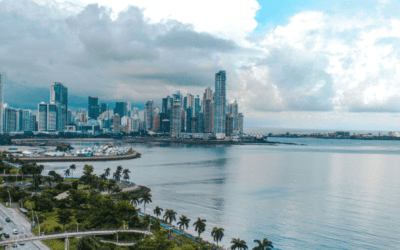Dateline: Kuala Lumpur, Malaysia
In the late 1990s, I started reading books by economic forecaster Harry Dent, whose model uses the idea of demographics to predict the rise and fall of countries. Last year, I interviewed Mr. Dent here.
While not all of Harry Dent’s predictions have come true and we don’t agree on everything, I have always been intrigued by the notion that the population of a country actually matters.
It’s quite simple, really: outside of the credit bubbles, the money manipulation, and the elite cartels calling the shots, it is the people of a country and their spending habits and purchasing desires that call the shots.
As a lifelong entrepreneur, this concept makes a ton of sense. When people want something, they buy it. Sometimes they’ll even spend more money than they have to buy it.
Real people buying and selling in a free market is what truly drives economies, not some credit babble the overeducated class of economists with degrees but no real experience have to say.
That’s precisely why we frequently discuss what I called the world’s “New Boom Markets”. The basic idea is that, all around the world, countries are churning out newly middle class consumers by the truckload every day.
The western media will tell you that “emerging markets are slowing down“, it is really the continued death of the west that is experiencing slowing.
Here in Asia and the emerging world, the fundamentals on the ground are solid. When you are examining where real growth is occurring, you can’t look at big bubble stock markets or real estate markets ready to pop. You have to look at the everyday fundamentals.
And in The Land of the Free, those fundamentals are looking bad right now.
Let’s take the demographic approach to predicting future economic conditions in the United States. Today, more US persons are 23 years old than are any other age.
Considering that a glut of teenagers in Africa bode favorably for the demographics of that continent, a glut of 23 year olds presumably fresh out of college in the United States would seem like a coming boon to the economy.
However, nothing could be further from the truth. As Fortune reports, this group of 23 year olds is unlike any other since the Baby Boom after World War II.
These young US persons want many of the same things that make up the elusive and largely fictitious “American Dream”: to own a home, raise a family, and save for retirement.
To start, buying a home will be rather difficult. That’s because one in three young US persons has a seriously tarnished credit record that includes at least one major default. Whether that means a student loan default, an eviction, or a foreclosure, the generation being counted on for the next round of growth in the United States isn’t ready for prime time.
As a result of a large portion of the US population buying into the propaganda that college is the only way to ensure financial success in life, much of the young US population is heavily burdened with student loan debts.
The availability of student loans, encouraged by big government, has made the cost of college so ridiculous that it has built an unsustainable cycle of never-ending prices. Beyond just the cost of college, the cost of college housing has become ridiculous. My friends in a college town near Phoenix, Arizona report that you can’t find an available apartment for less than $1,200 a month.
But forget the cost of college. Forget that student loans will be the next bubble to pop.
The massive undertaking of debt by US students to obtain degrees in poetry, tourism, and Russian literature has the country’s insolvent banks freaked out about lending money to what they perceive as high credit risks.
Even as banks in the western world fail to learn the lessons of just a few years ago with new subprime loans, putting your money at risk, they aren’t eager to lend to a new generation of highly indebted wannabe poets.
That doesn’t bode well for a US real estate market stuck in a “multi-year hangover” and still reeling from the fallout of the last bubble bursting.
There a lot of reasons to avoid US real estate, but the documented facts are that even as houses sell through at a faster pace than before, prices are not rising.
Meanwhile, the parties contributing to faster sell-through of homes have been investment firms and foreign investors who sought out cheap properties with high yields to hold for a few years, then dump.
Couple those investors exiting their positions with a market that is increasingly difficult for indebted, jobless, and underemployed youth to enter and you’ve got a problem.
Wages in the United States have risen only 50% in the last two decades, while prices of many consumer staples have risen four-fold or even more. I shared earlier this year that the price of bananas, just as an example, is up 300% since I was a kid fifteen years ago.
No amount of government book cooking to keep inflation and unemployment rates artificially low can explain the fact that the price of things we all need – food, fuel, housing – have gone through the roof. Government has tried to keep a lid on exactly what is unfolding in the United States right now.
Basically, they’ve tried to stop word from getting out that the United States is heading away from developed world status and toward a cronyism paradise where a few political elites control the nations’ wealth.
Kind of like China, a nation most US persons rail against.
Even while China is cooling, however, the cultural fundamentals that help turn strong demographics into economic success are still there. The average young Chinese male saves more than half of his salary to buy a house for cash, or at least with a very small mortgage. I’ve spent a lot of time in China meeting people who work themselves to the bone to save money to buy the things their family needs to avoid going into debt.
The debt issue in the United States is so unsustainable that banks are now keeping delinquent homeowners out of default as home prices tumble in many markets.
In the same way that the US government puts a happy face on unemployment numbers by not counting people who have given up seeking employment, banks are now claiming dwindling foreclosure numbers that exist in large part thanks to their failure to put delinquent loans into foreclosure.
It’s just another example of how the western world is entirely propped up by phony data used to make people feel better about the economy rather than actually building a robust economy based on what works.
I suspect that the people that actually have a clue as to how economies work realize that the US economy is dead on arrival and is headed to second or even third world status with a bullet. No law aimed at curbing credit cards among youth or limiting student loan interest rates can fix the deeply fundamental issues with the economy.
When banks and governments change their behavior and their methodologies for the express purpose of issuing rosier numbers to the public, you know you’ve got a problem. And when the next generation the country is counting on to keep the economy afloat is dead broke and has few options, you’ve got a bigger problem.
There are so many young people in the US now who are facing record youth unemployment and record hopelessness for their future that the place could easily turn into a much bigger version of Greece or Spain, where youth are rioting in the streets over their misfortune.
High debt + miserable job prospects + rising costs of living + no way to build wealth = trouble. Economies in trouble are rarely comfortable places to live or invest even if you have money. Just look at Greece.









